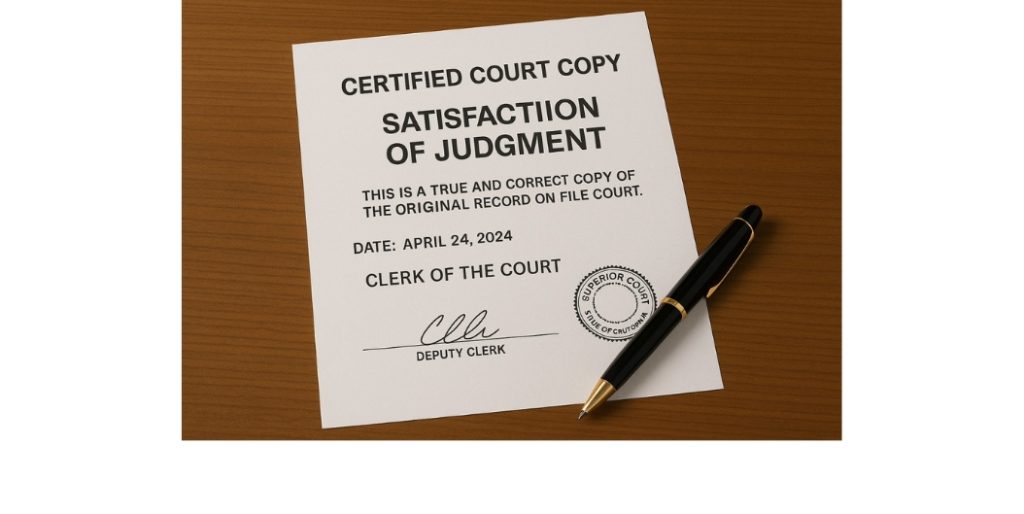In California, a notarized Acknowledgment of Satisfaction of Judgment is often required for recording. But can a certified court copy take its place? Here’s what you need to know.
Understanding Filing vs. Recording in Judgment Satisfaction
When a California judgment is paid in full, the creditor must take the appropriate steps to acknowledge satisfaction. This typically involves:
But here’s where confusion often arises: Does the document need to be notarized, or will a certified copy from the court suffice for recording purposes?
The first step is filing EJ-100 with the court to reflect the paid judgment. When doing so:
If an Abstract of Judgment was previously recorded to place a lien on real property, the lien must now be removed. This requires recording a Satisfaction of Judgment with the County Recorder.
You can record the document directly—but only if it has been notarized.
If the EJ-100 was already filed with the court, you may obtain a certified copy from the clerk and record that version instead.
Check with the specific county recorder where the lien was recorded. While most accept certified copies, some may still prefer notarized originals.
| Process Stage | Notarization Needed? | Certified Copy Accepted? |
| Filing EJ-100 in Court | No | N/A |
| Recording with Recorder | Yes (unless using certified copy) | Yes (in most counties) |
Properly satisfying and recording a judgment ensures that:
Need help preparing or recording your Satisfaction of Judgment? Reach out to our legal support team at CountrywideProcess.com to get it done quickly, accurately, and in full compliance with California law.

Countrywide Process
May 30, 2025